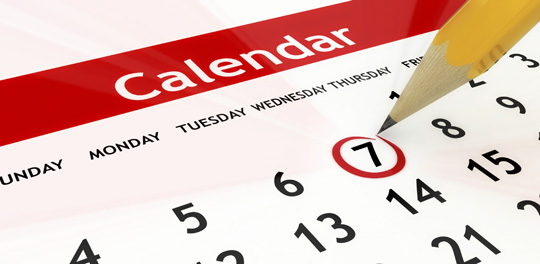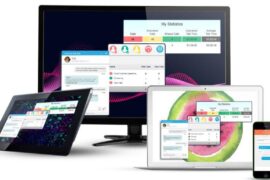If you’ve ever found yourself hoovering the living room rather than working on that new commission, you are not alone. Freelancing can be a very rewarding, both personally and financially, and it’s great that you have control over how much you work, what kind of jobs you take up, and can work from the comfort of your home – but it’s much harder to avoid distractions!
Many freelancers struggle to stop procrastinating and keep their levels of productivity up. You can check your own levels of procrastination with this free time management test. But don’t worry – you can overcome this obstacle if you adopt the right strategy and maintain some good habits. Here are some tips and suggestions that can help you:
Remove distractions
It’s easy to become distracted and focus on something other than your job, especially if you work from an informal environment like your home or a cafe. It’s important to remove distractions from your vicinity. Keep your phone out of reach, block all social media websites from your computer during working hours, and let people know that you don’t appreciate receiving calls and messages during your working hours. That will help you keep all distractions at bay so you can focus on your work.
Create a schedule and stick to it
 Distractions aren’t your only obstacle because poor organisation can have an impact on your overall productivity as well. The first step to creating a workable schedule is to understand when you’re most productive. For example, if you’re most productive in the mornings, schedule the most difficult or challenging tasks for this time. You can schedule the easier and less challenging ones for the end of the day so you don’t feel the burdened. Make sure you stick with the schedule as much as you can, and don’t postpone anything unless absolutely necessary.
Distractions aren’t your only obstacle because poor organisation can have an impact on your overall productivity as well. The first step to creating a workable schedule is to understand when you’re most productive. For example, if you’re most productive in the mornings, schedule the most difficult or challenging tasks for this time. You can schedule the easier and less challenging ones for the end of the day so you don’t feel the burdened. Make sure you stick with the schedule as much as you can, and don’t postpone anything unless absolutely necessary.
Reserve time for emails and communications
We’re accustomed to replying to emails and messages instantly. It only takes a few seconds or minutes to read a message and compose a reply, but that’s enough to have an impact on your productivity. Once your mind is distracted, you will take some time to refocus on your work. It takes the mind around 10 to 15 minutes to refocus on the task at hand and that can have an impact on your productivity. Instead of replying to your emails and communications immediately, schedule a time during the day to check the mails and reply. That will help you manage your time better and get more done without distractions.
Schedule regular breaks
Your mind can only remain focused on work for so long before it needs a break. If you work for a full hour, it’s a good idea to take a 10 to 15 minute break and get some fresh air. This might seem like a waste of time because you might spend a full hour or more just taking breaks during the work day, but it actually helps keep your productivity levels up. You’re more likely to make mistakes and slow down if you’re focused on one task for too long. Take a step away from your desk and take a walk outside just to give your mind a break and stretch your body.
Set a timer to distractions
Once distracted, it can take as long as 25 minutes to re-focus on whatever task you were performing before you got sidetracked. But distractions are often inevitable, despite your best intentions. It’s a good idea to get a timer to bring your focus back to the job. A simple alarm on your watch or your phone can help you keep track of the time wasted, and ensure you don’t exceed a certain limit. For example, if you see a call from a friend and want to answer it, click the timer on your phone or watch as you receive the call. That will stop you from extending the conversation and ensure you get back to work quickly.
Save or bookmark interesting things on internet
 Freelancers and bloggers work on the Internet and use it to source information. It’s not uncommon to stumble across an interesting post or video during the research. You might be tempted to read or watch the content immediately and that will distract you from your work. Instead of reading it, bookmark it or save it. That ensures you don’t lose track of the interesting content and can come back to it when you don’t have work to do. You can also use websites like Pinterest to simply pin the content instead of saving it on your browser.
Freelancers and bloggers work on the Internet and use it to source information. It’s not uncommon to stumble across an interesting post or video during the research. You might be tempted to read or watch the content immediately and that will distract you from your work. Instead of reading it, bookmark it or save it. That ensures you don’t lose track of the interesting content and can come back to it when you don’t have work to do. You can also use websites like Pinterest to simply pin the content instead of saving it on your browser.
Set your phone to priority calls only
Most people don’t keep their phones on silent because they don’t want to miss important calls – meaning they get a lot of not-important calls too! Fortunately, you can set your phone to priority calls only and add important contacts to the priority list. This will ensure you’re not distracted by needless calls throughout the day.
Choose clients and projects carefully
Choose clients and projects carefully based on the time available to you and your ability to manage the task. At some point of time, you’ll have to start turning down work in order to keep your schedule manageable. Understand your abilities and limits, and don’t take more work than you can manage comfortably.
Compartmentalise your life
Keep work and private life separate. This is something freelancers struggle with on a daily basis and that can have an impact on the quality of their work. Schedule a proper time for work and don’t work beyond that time unless it’s absolutely necessary and unavoidable. You need to give your mind a break.
Don’t forget sleep
 Most adults need around 7 to 9 hours of sleep every day. If you forgo sleep on one day, you need to sleep more to compensate at a later date. That’s why it’s important to sleep regularly and maintain a consistent pattern.
Most adults need around 7 to 9 hours of sleep every day. If you forgo sleep on one day, you need to sleep more to compensate at a later date. That’s why it’s important to sleep regularly and maintain a consistent pattern.
Get on with it!
Anyone can retrain themselves to be productive – and as a freelancer and/or blogger, you know it’s worth it. Want to be working 9 to 5 in an office again? Well, then! Freelancing offers a great deal of freedom and is a fantastic career choice – now get on with it!
Author: Ashley Andrews is an Inbound Marketing Strategist at Activia Training, a UK-based training provider specialising in improving delegates’ workplace performance in business skills, management development and IT applications. Ashley is passionate about sales and management issues, and regularly blogs about these – and many other topics – on the Activia blog.































